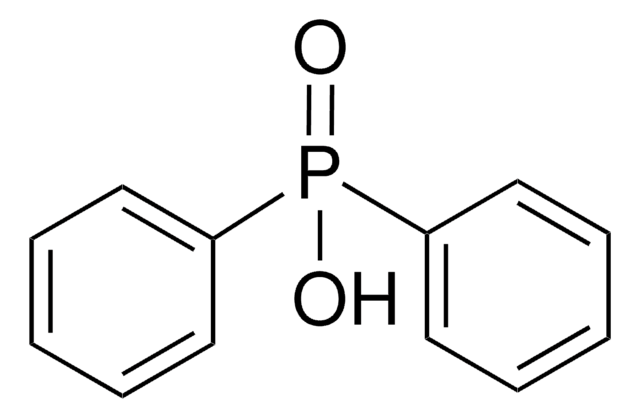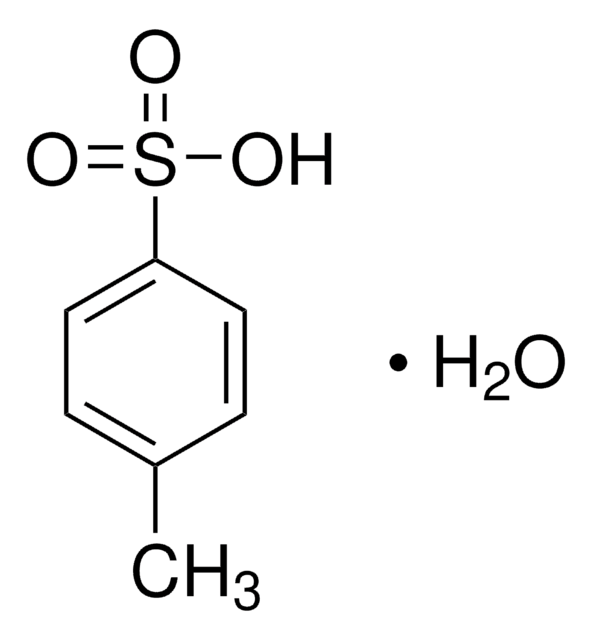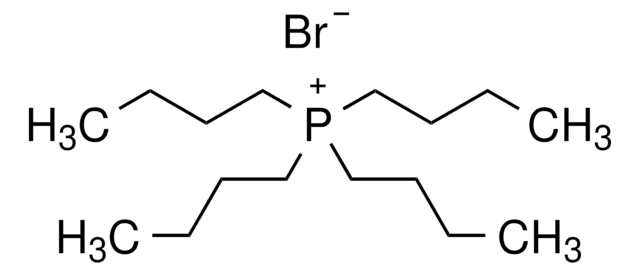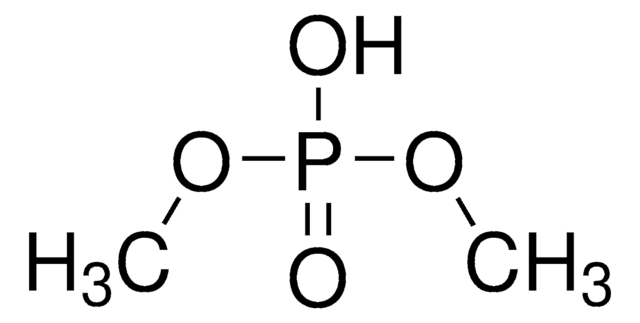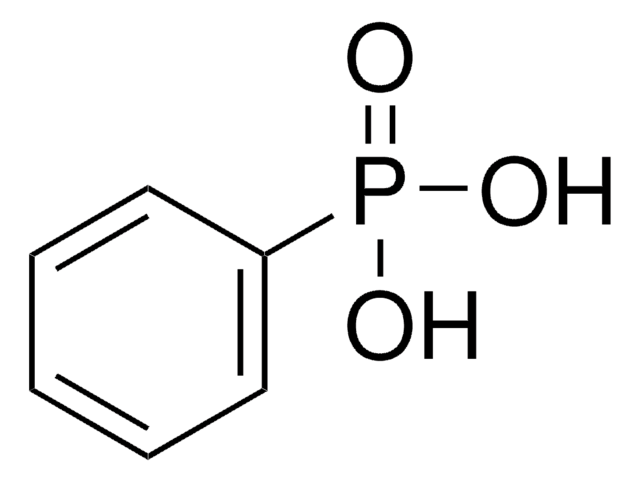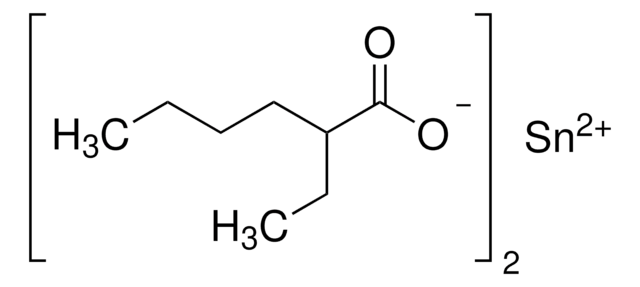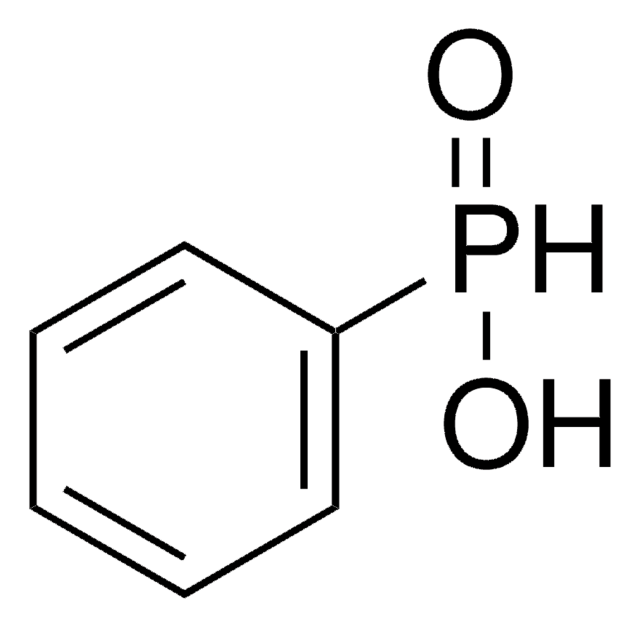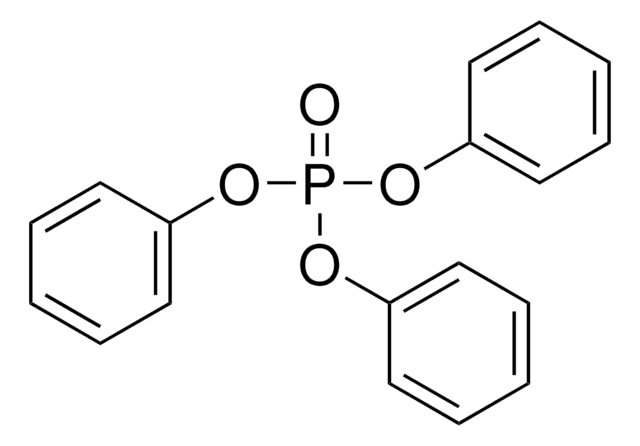850608
Diphenyl phosphate
99%
Synonym(s):
Diphenyl hydrogen phosphate
Sign Into View Organizational & Contract Pricing
All Photos(1)
About This Item
Linear Formula:
(C6H5O)2P(O)OH
CAS Number:
Molecular Weight:
250.19
Beilstein:
1379164
EC Number:
MDL number:
UNSPSC Code:
12352100
PubChem Substance ID:
NACRES:
NA.22
Recommended Products
Assay
99%
form
crystals
mp
62-66 °C (lit.)
SMILES string
OP(=O)(Oc1ccccc1)Oc2ccccc2
InChI
1S/C12H11O4P/c13-17(14,15-11-7-3-1-4-8-11)16-12-9-5-2-6-10-12/h1-10H,(H,13,14)
InChI key
ASMQGLCHMVWBQR-UHFFFAOYSA-N
Looking for similar products? Visit Product Comparison Guide
Related Categories
Application
Diphenyl phosphate can be used as an organic catalyst for the ring-opening polymerization (ROP) of renewable 5-alkyl δ-lactones. In combination with zinc iodide, it forms a novel initiating system for the living cationic polymerization of isobutyl vinyl ether.
WGK
WGK 3
Flash Point(F)
Not applicable
Flash Point(C)
Not applicable
Personal Protective Equipment
dust mask type N95 (US), Eyeshields, Gloves
Certificates of Analysis (COA)
Search for Certificates of Analysis (COA) by entering the products Lot/Batch Number. Lot and Batch Numbers can be found on a product’s label following the words ‘Lot’ or ‘Batch’.
Already Own This Product?
Find documentation for the products that you have recently purchased in the Document Library.
Customers Also Viewed
Living cationic polymerization of isobutyl vinyl ether by the diphenyl phosphate/zinc iodide initiating system.
Sawamoto M, et al.
Polym. Bull., 20(5), 407-412 (1988)
Xiao Yan et al.
Chemosphere, 200, 569-575 (2018-03-06)
Urinary metabolites of phosphate flame retardants (PFRs) were determined in workers from an electronic waste (e-waste) recycling site and an incineration plant, in order to assess the PFR exposure risks of workers occupied with e-waste recycling and incineration. Bis(2-chloroethyl) phosphate
Guowei Wang et al.
Environmental science & technology, 50(24), 13555-13564 (2016-12-21)
Understanding bioaccumulation and metabolism is critical for evaluating the fate and potential toxicity of compounds in vivo. We recently investigated, for the first time, the bioconcentration and tissue distribution of triphenyl phosphate (TPHP) and its main metabolites in selected tissues
Polymerization of 5-alkyl ?-lactones catalyzed by diphenyl phosphate and their sequential organocatalytic polymerization with monosubstituted epoxides.
Zhao J & Hadjichristidis N.
Polym. Chem., 6(14), 2659-2668 (2015)
Andreia Alves et al.
Chemosphere, 168, 692-698 (2016-11-12)
In the present study, a new extraction method based on acid digestion and SPE clean-up (Oasis Wax) was developed for measuring four PFR metabolites (i.e. dibutyl phosphate (DBP), diphenyl phosphate (DPhP), bis(1,3-dichloro-2-propyl)phosphate (BDCPP) and bis(2-butoxy ethyl) phosphate (BBEP)) in hair
Our team of scientists has experience in all areas of research including Life Science, Material Science, Chemical Synthesis, Chromatography, Analytical and many others.
Contact Technical Service


